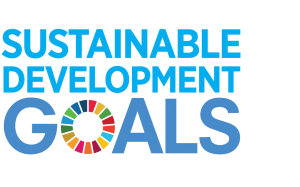GEORGE’S GRENADA, FEBRUARY 19, 2025-Regional technicians and stakeholders have been trained to utilize tools needed to help them understand and model Soil Organic Carbon (SOC), Sequestration, a critical tool in addressing land degradation.
A total of 27, participants from the eight (8) project countries that are part of the Caribbean Small Island Developing States (CSIDS) multicountry soil management initiative for Integrated Landscape Restoration and climate-resilient food systems (SOILCARE), project Phase 1, February 10-15 2025, exploring and comparing carbon gaps, correlating them to their country’s potential and strengthening their awareness on the recommended management strategies. The training was organised by the Partnership Initiaitive for Sustainable Land Management (PISLM), in collaboration with the Global Soil Partnership, of the Food and Agriculture Organisation and funding from the Global Environment Facility (GEF).
“This training will help us to achieve one of the indicators of the project- which will result in the production of national and contribute to global soil organic carbon sequestration maps, and will support the countries in reporting to the United Nations Convention to Combat Desertification (UNCCD), and achieving this target by 2030,” explained Trevor Thompson-Project Manager for the CSIDS SOILCARE Phase 1.
The hands-on training facilitated by Isabelle Luotto of the Global Soil Partnership, focused on the use of tools, software and methods to calculate carbon stocks considering factors such as land use and soil types. She said the exercise,“Supports the establishment of the Global Soil Information System, plays a vital role in improving management for agriculture.”
The Regional participants in the weeklong training included scientists, land use officers, Lab technicians, GIS officers and other technical staff of Ministries of Agriculture and the Environment, that have previously participated in Digital Soil Mapping trainings held under the project in 2023 and 2024. This ensured that capacity was being continuously built in each country.
Delivering feature remarks at the opening of the workshop, Hon. Lennox Andrews Minister for Economic Development and Planning, Agriculture and Lands, Forestry, Marine Affairs and Cooperatives, expressed his appreciation for the continued capacity building initiatives under this project-including the SOC Sequestration Modelling Training.
“We appreciate the work that this project is doing within the Caribbean to build soil fertility and health. This is important for our main stakeholders in Grenada- the farmers. It will help them to know the true status of our soils and help us as policymakers to make evidence-based decisions.”
This training is the second in a series of training courses on digital soil mapping, under the CSIDS SOILCARE Project, within the project countries. Following the one-week exercise, the participants will be able to develop their own national Soil Organic Carbon sequestration maps, using the data available from National Surveys under the SOILCARE project. National Soil Organic Carbon Sequestration maps will thus be available for the countries that participate in the training. This training marks an important milestone for the project in building climate resilient food systems within the project countries-Antigua and Barbuda, Barbados, Belize, Grenada, Guyana, Haiti, Jamaica and St. Lucia.
ABOUT PISLM
The PISLM for CSIDS is the only independent IGO with a mandate to help Caribbean SIDS meet their obligations under the UNCCD and land and soil areas of the Barbados Programme of Action (BPOA).
ABOUT GSP
The Global Soil Partnership (GSP) is a globally recognized mechanism established in 2012 with the mission to position soils in the Global Agenda and to promote sustainable soil management. The Partnership, hosted by FAO, works hard to improve soil governance to guarantee productive soil towards food security, climate change adaptation and mitigation, and sustainable development for all.

